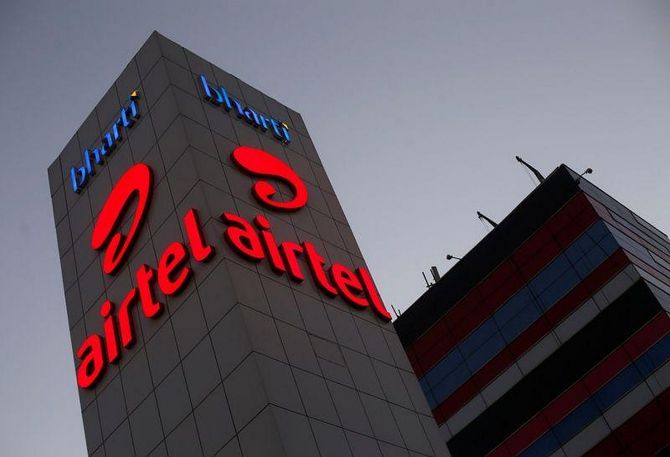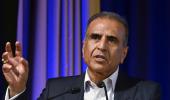'We operate in 16 countries already, and therefore adding the UK to it, and beginning a chapter in the European continent is the next step.'

Telecom major Bharti Enterprises' aim to move into more developed 'hard currency' markets prompted its strategic stake buy in the UK's BT group and it does not aim to seek a board position at the moment despite being the largest investor in the British telco, says Chairperson Sunil Bharti Mittal.
On why Bharti acquired stake in BT group
The growth in the UK market is much lower, in line with other developed economies. But BT's current revenue is large.
If you look at Airtel's revenue and Ebitda, it's almost a mirror image.
The investment was made at this time because BT has always maintained a strategy to raise its free cash flows.
It is a leading mobile operator in the UK. It is probably the only company which can cover 30 million homes in the UK with broadband, of which nearly 60 per cent is done.
In the next two years, they will complete the rest.
On how the deal will be funded
Barclays has been the single financial advisor for this transaction.
They will provide some immediate cash. So there will be a mix of equity, and some financial support coming from Barclays.
On further investments and board control in BT
We have no intention of moving beyond this. We will take a full appreciation of what we have done here, see the stock appreciating in coming days and then move ahead.
There is no plan to buy any more stake. We have made a statement saying we have no intention of a takeover.
In this particular case, it is an investment. We are not going and operating BT, but only backing their management and strategy.
We will have an influential position in the company, and haven't put any conditions regarding the stake.
At this stage, we are not asking for a board seat. Until the stake is fully bought, it is best that we are not a part of any internal procedure of BT because we are yet to complete our purchase.

On synergies between Bharti's new stake in BT Global and its satcom business Eutelsat Oneweb
Our satellite monitoring stations are already established in Gujarat and South India.
This will provide connectivity across the entire country and the high waters. It will also cover the SAARC countries. It is ready to go now.
We have done some tests in the Himalayas, and have provided proof of concepts to the army, navy and government agencies.
We are just waiting for permission from the Department of Telecommunications (DoT). It could come anytime.
We have requested the government to expedite the process because it is much needed, especially for our government agencies in very remote areas.
On beginning satellite communication services in India
DoT has sent the terms of reference to the Telecom Regulatory Authority of India (Trai).
Trai has already started the consultations. As soon as Trai comes out with the paper, I sense we should be ready.
In fact, Trai has given an undertaking to DoT that permission can be given in the interim, and compliances met as and when. We are fully ready.
On Indian companies foraying abroad
There are a handful of Indian companies including the Tatas which have emerged as bluechip Indian MNCs.
There have been many attempts by other corporate houses. We have seen IT companies setting up shop abroad.
There are also companies like Hero Motors and Bajaj. The government is continuously encouraging the handful of companies who have gone global to accelerate the process.
We operate in 16 countries already, and therefore adding the UK to it, and beginning a chapter in the European continent is the next step.
More companies will come forward and invest abroad. We are seeing a lot of activity in the steel, paint, and other sectors.
For that, you need to be strong in your home market. Indian businesses have come around remarkably well.
On Bharti group's strategic stakes abroad
Our exposure to emerging markets is fairly straight. Besides India, which is a high growth market, we also have strategic stakes in Bangladesh and Sri Lanka in South Asia, and 14 countries in Africa.
That gives us the opportunity to go into virgin markets in Africa. Latin America is too far for us to go. That has also nudged us into going towards more hard-currency areas.
On what's next for Airtel
Airtel has been busy building India and it will be focussed for the next 2 to 3 years on its larger mission of developing more 5G, filling in gaps in 4G, fixed wireless access, the enterprises business and more data centres being built.
Airtel has its hands full. Airtel's projected cash profile over the next two to three years looks pretty strong to us.
At that point of time, who knows what the board of Airtel will decide, given the large cash flow and the capital expenditure in India becoming smaller.
Given the size of its Ebitda, there could be opportunities globally for Airtel. Whenever Airtel makes a move, it needs to be an operator.
Feature Presentation: Rajesh Alva/Rediff.com











